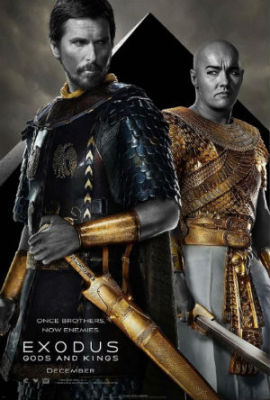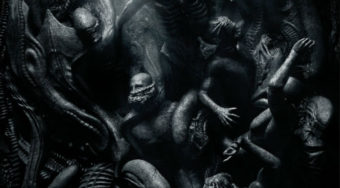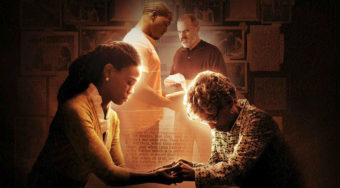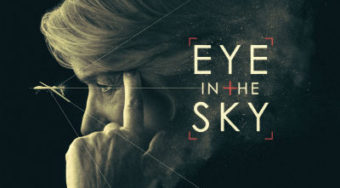Film Reviews

Exodus: Gods and Kings
Genre: Action and Adventure
Director: Ridley Scott
Cast: Christian Bale, Joel Edgerton, John Turturro, Aaron Paul, Ben Mendelsohn, Sigourney Weaver, Ben Kingsley
MPAA-Rating: PG-13
Release Date: December 12th, 2014
The Imitation Game is the rare film that offers an off-putting protagonist and dares the audience not to like him. Benedict Cumberbatch stars as Alan Turing in this true story about a brilliant mathematician who seeks to crack the German enigma code in the midst of World War II. Like Sherlock Holmes on the British series that Cumberbath stars in and Sheldon Cooper on The Big Bang Theory, treatment Turing is a science-driven, cialis 40mg logic-loving braniac who can’t help but alienate everyone he meets.
A simple lunch invitation isn’t easily deciphered by Turing, thumb who parses every word as if being exact is the same as being smart. It isn’t and it’s no wonder that the team of scientists he’s partnered with don’t appreciate his genius. That team is charged with deciphering the coded military messages the Germans are passing to one another during the war.
Graham Moore, adapting the book Alan Turing: The Enigma to the big screen here, is never hesitant in presenting Turing as a man that most people would dislike in ordinary life. How frustrating it would be to live with or even work with a person who doesn’t understand sarcasm, can’t tell a good joke and finds it hard to hold a reasonable conversation. The British team that Commandar Deniston (Charles Dance) builds to break the code doesn’t like Turing and neither will some members of the audience, who will find his personality grating at first.
Fortunately, director Morten Tyldum knows how to solve the puzzle of making an unlikeable figure profoundly likeable. He does it partly by showing so many other characters disliking and mocking Turing (especially in his younger days, when Turing was bullied by his vicious schoolmates). That helps build our sympathies for him.
An often-repeated line in the screenplay notes that “Sometimes it’s the very people who no one imagines anything of that do the things that no one can imagine.” And Turing, despite his obvious intellectual prowess and cockiness, is the type of figure that can easily be written off because of his personality alone. He shouldn’t be.
If The Imitation Game was simply a good historical drama, the story would’ve centered solely around the code-breaking task. Fortunately, Moore and Tyldum are aiming for something much higher here. They present Turing’s story not simply as a historical retrospective but as a painful drama about a brilliant man who had a major secret to hide: Turing was gay. In a society where homosexuality was illegal, that fact alone would’ve prevented the mathematician from serving on such a project (and could’ve put him in prison).
In showing that aspect of him and slowly revealing what happened when Turing’s sexuality was eventually outed, the filmmakers present a story that is both historical and fiercely contemporary. There are a few self-congratulatory moments when the script feels too obvious unfortunately. One such moment occurs in regards to an upcoming German attack that will deeply affect one of the men working on Turing’s project.
But aside from a few moments like that, The Imitation Game relies solely on its narrative prowess and strong script to tell its story. Cumberbatch, in his Sherlock-type role, does strong work here as does Keira Knightley— who plays the only female on the secretive team and Turing’s greatest advo. It’s a dramatic film that comes together well at the end, showing Turing’s genius and why “genius” alone wasn’t enough to save him from facing an ugly justice system.
In 2014, ed
Hollywood has embraced telling religious stories on film. No longer, it seems, are religious viewers denied the opportunity to see biblical stories onscreen.
In February of this year, Roma Downey and Mark Burnett brought Jesus’ story to the big screen in the noble Son of God. In March, director Darren Aronofsky presented Noah , which— in spite of its narrative flaws— worked as an epic tale. This weekend, Ridley Scott— the newest high-profile director to embrace this trend— offers up a version of Moses’ story in the new drama Exodus: Gods and Kings.
Regardless of your religious beliefs, this biblical story of Moses leading the Hebrew slaves out of Egypt is a massively engaging one, and one that could easily serve as the basis for an epic film. As a matter of fact, it already did in 1956 where Charlton Heston starred as Moses to great acclaim in Cecil B. DeMille’s beloved epic, The Ten Commandments.
But times are different now, it seems, and instead of relying on the compelling narrative to tell the story, Scott focuses all of his attention on production values and visual effects. Oscar winner Christian Bale stars as Moses and does an admirable job but Joel Edgerton seems completely lost as the monstrous Ramses, making the figure as superficial and off-putting as the massive amount of make-up that adorns his face. After a rumor spreads that Moses is a Hebrew, Ramses threatens one of Moses’ loved ones and forces him into exile. The superficial scenes between the two (showing their comradery before Moses’ exile) — like so much of the first hour— simply seem to exist to tire out audiences before the plagues begin.
Scott only seems interested in what happens in the second hour of the drama (which, for the record, clocks in at a grating 146 minutes). Some of the effects work but they offer little consolation for viewers who are more interested in substance than style.
Instead, well-known actors— like Sigourney Weaver and Aaron Paul— appear and then seemingly disappear from the drama with little explanation. That only gives more room for Scott to add in unnecessary special effects like a brutal alligator attack and horses being devoured by sharks. When, one wonders, did ancient Egypt become the site of Jaws 5?
As for God himself, he doesn’t speak to Moses through a burning bush. He speaks to Moses through a petulant child named Malak (Isaac Andrews), who condescendingly commands Moses to do things he’s uncomfortable with. When Moses is hesitant to follow God’s plan, Malak notes “For now you can watch” and later, when Moses urges restraint, Malak insists that he wants to see the pharaohs on their knees.
Ironically, God is presented as a vicious leader while little is shown of the physical abuse that the pharaohs delivered to their slaves for hundreds of years (when some abuse is shown, it’s directed at a slave who notes that he doesn’t feel any pain). The story of exodus should’ve been about these slaves escaping their masters but instead Scott misses the main reasons why they needed to escape.
If Hollywood wants to embrace Biblical stories, they should focus more on the text and show why certain things— like the exodus itself— were important and necessary, unlike the film Exodus: Gods and Kings, which is a baffling waste of time and talent.
Review by: John Hanlon












